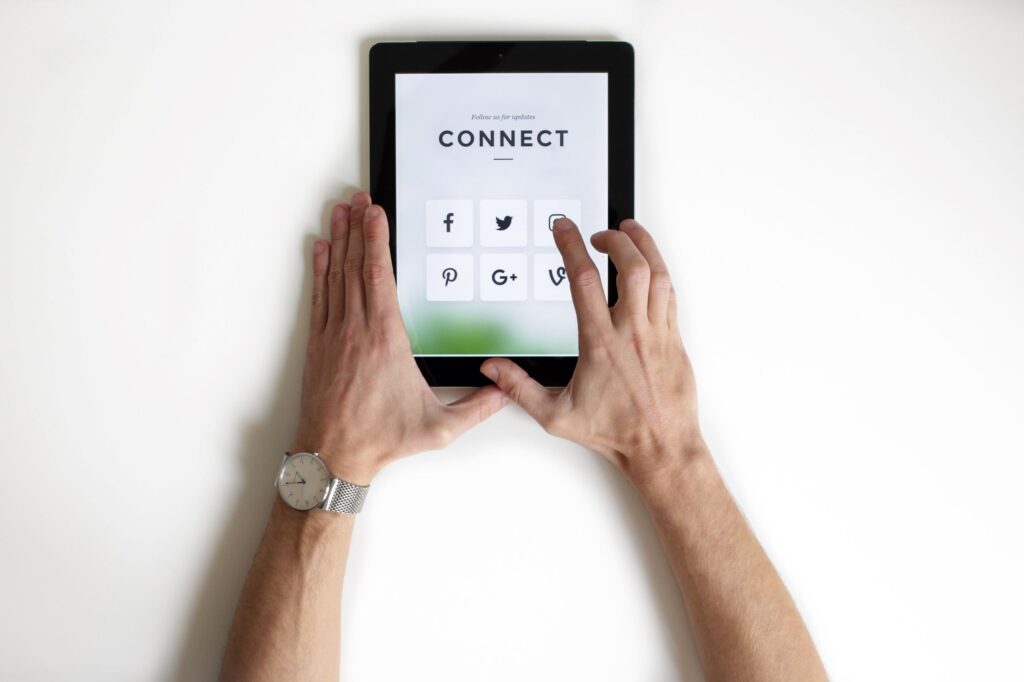During the COVID-19 pandemic, you have fewer opportunities to venture outside your home to go to the movies or to have dinner with friends. You probably find that you do have more time to stay home and scroll through social media sites. As you post and read others’ posts, keep in mind that using social media responsibly during COVID-19 is important for your mental health and for your continued recovery.
Billions on Social Media
When you use social media, you are definitely not alone. A survey conducted in July 2020 found that more than half of the world now uses social media. There are 4.57 billion people across the globe who use the Internet, including 346 million who have just come online within the past 12 months.
COVID-19 on Social Media
During COVID-19, many people are turning to social media for news and updates. Even if you are not purposely searching for information on the coronavirus outbreak, more than likely you will find posts about the virus as you scroll through social media sites. A separate survey conducted by Gallup in April 2020 revealed that 46% of social media users said that “almost all” or “most” of what they see is about the coronavirus situation and an additional 37% said “about half” is.
In addition, over two-thirds of social media users say coronavirus-related posts that they see from public officials (70%) and news organizations (68%) are “very” or “moderately” helpful. Fifty-seven percent say the same about posts from family members and friends, while fewer say so about posts from neighbors (43%).
Social Media for Connection During COVID-19
You may be using social media during COVID-19 to reconnect with friends and family. The April 2020 Gallup poll also found that seventy-four percent of Americans who use social media say it has been “very” or “moderately” important to them personally as a way to stay connected with people who are close to them that they may not be able to see in person during the coronavirus situation. And 63% say the same about the ability to stay connected with people in their city, town, or local community.
When you are not able to visit friends and family in person, social media can be a useful tool for keeping in touch. Using social media responsibly during COVID means, though, not sharing too much personal information online. Even when you think that only your friends can see what you post, messages can find their way through the virtual world to places that you don’t want them to go.
Manage Your Time
When you have nothing else to do, you may think there is nothing wrong with spending hours on social media. When you are using social media responsibly during COVID, you will limit your screen exposure, so it does not consume all of your time. Social media users spend an average of 2 hours and 24 minutes per day on an average of 8 social networks and messaging apps. If you are spending more time on social media than on other constructive activities, it could affect your mental health.
Just the Facts
When using social media responsibly, focus purely on facts and verifiable information in the posts you read as well as your own posts. During the COVID-19 pandemic, a phenomenon coined by UN Secretary-General António Guterres as a “pandemic of misinformation” has arisen on social media platforms. Nearly two-thirds of Americans say they have seen news and information about the disease that seemed completely made up, according to a recent Pew Research Center study.
Social Media Overload
As you are using social media responsibly during COVID, you will find that spending less time online and focusing on verifiable facts rather than rumors can be beneficial to your mental health. A number of research studies have concluded that low levels of social media usage are associated with better mental health. In fact, it has been discovered that people who limit their social media use to half an hour a day have significantly lower depressive and anxiety symptoms compared to a control group.
One large-scale study found that people who are occasional users of social media are almost three times less likely to be depressed than those who are heavy users. Another study revealed that younger people who use social media more than two hours per day are much more likely to rate their mental health as “fair” or “poor” compared with those who are occasional users.
Mental Health Treatment for Men During COVID-19
The professional team at PACE Recovery Center specializes in helping men who are faced with mental health challenges, including trauma and PTSD related issues. We also work with those who are addicted to drugs and alcohol who are looking for a more fulfilling life.
During the COVID-19 pandemic, we realize you may need help now more than ever. We are open and have put in place a stringent set of protocols to protect your health and safety. Please contact us today to learn more about how we can help you get started on your path to lasting recovery. Please call us today at 800-526-1851.



